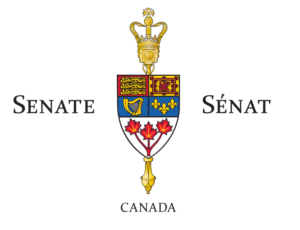The “Great Reset”: Making Finance Work for an Inclusive and Resilient Future
The Covid-19 pandemic forced governments around the world to put in place unprecedented fiscal and monetary stimulus packages in response to the devastating effects of the global pandemic. While stimulus measures were used to fight past to fight crises such as the Global Financial Crisis of 2008/09 or the European debt crisis of 2011/12, the scale of the current interventions, in terms of the amounts involved, the sectors covered, and the number of countries touched by this health crisis, have no precedent in recent history. Despite this massive injection of capital to support businesses and communities, the full economic and social impact of the pandemic is still uncertain.
“One hundred and seventy countries are going to finish this year with a smaller economy than at the start of the year, and we already project that there will be more debt, bigger deficits, and more unemployment. And there is a very high risk of more inequality and more poverty…Unless we act”, said Kristalina Giorgieva, Managing Director of the International Monetary Fund on June 3, 2020, when the Wold Economic Forum launched the “Great Reset” initiative and announced that this will be the theme of the 51st World Economic Forum Annual Meeting in January 2021.
The “Great Reset” is a commitment by the world community to “jointly and urgently build the foundations of our economic and social system for a more fair, sustainable and resilient future.”
This comes as multiple voices – from economists, civil society, academics, governments and business leaders calling for a “green recovery” or for “building back better” – gathered momentum around the idea of using this crisis moment to pivot to a “greener, smarter, fairer economy” by aligning policy responses and other private and public sector initiatives with environmental and social priorities to ensure a more sustainable and resilient future.
“We only have one planet and we know that climate change could be the next global disaster with even more dramatic consequences for humankind. We have to decarbonize the economy in the short window still remaining and bring our thinking and behaviour once more into harmony with nature,” said Klaus Schwab, Founder and Executive Chairman of the World Economic Forum.
“The Great Reset is a welcome recognition that this human tragedy must be a wake-up call. We must build more equal, inclusive and sustainable economies and societies that are more resilient in the face of pandemics, climate change and the many other global changes we face,” said António Guterres, UN Secretary-General.
Building on these calls for action, the Victoria Forum is pleased to invite you to join the conversation with a panel of experts who will discuss what these calls mean for the financial sector and the opportunity they present to strengthen the resilience of the global financial system, and to support a more sustainable and inclusive growth while managing systemic risks. From financial institutions, to investors to central banks and regulators, the types of recovery responses adopted now to fight the short term effects of the pandemic have the potential to either accelerate or delay countries transition to a more sustainable, inclusive and resilient future.
In this webinar, we will attempt to address following questions:
- What does a “Great Reset” mean for various financial sector participants, including institutions, markets, central banks and other actors, in Canada and Globally?
- How can the financial sector contribute to a greener and smarter growth while reducing inequalities and building more resilient economies?
- What will it mean in practice for the corporate sector to focus on all stakeholders (and not solely on financial returns)?
- How can we build better collaboration between public and private finance to support and accelerate the transition to a sustainable future?
Webinar Champion: Dr. Basma Majerbi in collaboration with Dr. Amadou Sy.
Webinar #7
Date: Thurs, August 20th, 2020
The Virtual Victoria Forum 2020, the webinars and the Victoria Forum 2021 are jointly hosted by the University of Victoria and the Senate of Canada.
This webinar is presented in partnership with:








